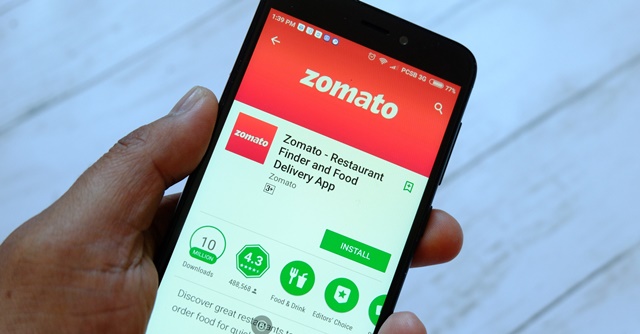
Spend-IT: Zomato’s tech budget nears $50 mn mark


Digital native venture that specialises in food delivery besides quick commerce, Zomato, had a reason for joy as it turned profitable for the first time clocking ₹2 crore in the first quarter of this financial year.
Zomato, which handled over 640 million orders, with average monthly customers of 17 million in FY23 alone, has also seen its needs for computing power rise in tandem as it clawed back the business that was affected in the initial days of the pandemic.
At its core, Zomato is a technology-first platform, evident in its investments in information technology. In FY23, Zomato dedicated ₹386.7 crore to IT expenditure, marking a 34% increase from the previous fiscal year, primarily attributed to heightened platform traffic and the addition of Blinkit in August 2022. Although this was a deceleration from 88% surge in IT expenditures during the year ended March 2022, the total tech budget is poised to breach the $50 million mark this year.

.jpg)
Zomato leverages artificial intelligence and machine learning for innovations on its platform to help stakeholders including customers, delivery partners and restaurants. Restaurant partners, in particular, benefit from fully automated order management systems, encompassing order transmission, order processing, menu synchroniation, payment reconciliation, content promotion, marketing tools, and invoice management features.
In June, Zomato launched a data analysis platform called Food Trends for its restaurant partners to take a data-driven approach to dishes, prices, and location. Zomato Food Trends analyses the data from millions of transactions across hundreds of cities in India, and can be accessed by anyone.

Zomato also collaborated with ICICI Bank this year to offer its own unified payments interface (UPI) offering called Zomato UPI. This feature can be used by customers to pay directly for their orders through the app by creating their own UPI ID without being redirected to other payment gateways. Such moves also add to the need for computing power with right security tone.
Another area where technology plays a pivotal role for Zomato is the onboarding of its delivery partners. This is done through Aadhaar-based verification via Digilocker for enhanced quality and impersonation checks. The company has also implemented application programming interface (API) based checks for regulatory license validation. For improved logistics, Zomato has installed automatic weather stations in a few cities (Delhi NCR, Bangalore, and Chennai) for better rain predictability and visibility to customers on the application.
Some believe that Zomato may encounter stiff competition from the government-backed Open Network for Digital Commerce (ONDC), an open protocol developed by the Department for Promotion of Industry and Internal Trade (DPIIT) under the Ministry of Commerce. ONDC aims to bring together buyers, sellers, and logistics operators, with notable participants like PhonePe, Paytm, Meesho, and global giants like Microsoft and Amazon already joining the platform. However, it is yet to make any dent into the digital native ventures.

